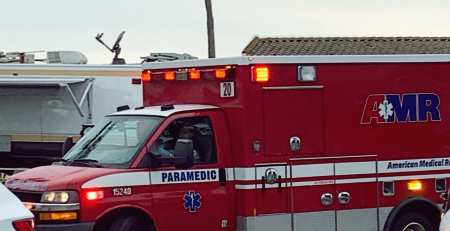What should every witness do before a deposition

Depositions Are Important in a Personal Injury Case
What should you do before your deposition?
Depositions are a crucial step in the presentation of your case to the opposing attorney, adjuster, and insurance company. It is your opportunity to both be you and to explain how the accident has affected your life and how you expect it to affect your life in the future. By the time you finish reading this blog you better have a list of what you intend to do.
This advice is being presented to you by the West Des Moines Personal Injury Attorney, Lombardi Law Firm
Ignore this opportunity and you will be squandering one of the best opportunities to settle the case and not have to try it to a jury. The point is to take it seriously and to do that you have to prepare.
By the time the defense lawyers want to sit you down for a deposition, written discovery has already been exchanged. The accident day was likely over a year previous and much of your medical treatment has taken place. Which means you have a lot of information you can review to refresh your memory about the details.
Know Your Deposition Game Plan
Before a deposition, witnesses should take several crucial steps to ensure they are prepared to provide accurate and reliable testimony. Here is a guide on what every witness should do before a deposition:
- Review Relevant Information: Take the time to thoroughly review any documents, emails, reports, or other materials related to the case. Refreshing your memory on the facts and details will help you provide more accurate and coherent testimony during the deposition. Do not just brush by this point. Accident report, photographs of the vehicles, photographs of the accident scene and photographs of your bodily injuries. There are medical records and medical bills, surgical reports, MRI’s, CT’s, X-rays, interrogatory answers, responses to requests for production, there is the Petition and the defendant’s Answer. There may be expert reports for you to reread. If you do not have copies, then ask your lawyer for copies.
- Understand the Case: Familiarize yourself with the key issues, parties involved, and the purpose of the deposition. Understanding the context of the deposition will help you anticipate questions and provide more relevant answers. To understand he case you simply have to review the Petition (Complaint) along with the Answer. Review it with your lawyer. And do not try to talk like a lawyer. Explain your theory in layman’s terms. “He ran the red light, drove right in front of my and my car crashed into his.” That is pretty simple, isn’t it?
- Consult with Your Attorney: If you have legal representation, schedule a meeting with your attorney to discuss the deposition. Your attorney can provide valuable guidance on what to expect, review potential questions, and advise you on how to respond effectively. If your lawyer tells you to just go in there and tell the truth, then you have the wrong lawyer. Everyone wants to tell the truth, but not everyone understands how to tell the truth about the facts in your case. If you do not understand the legal issues, the simple legal issues that form the framework of your claims, then you will never understand what the truth is. And everyone knows, a good lawyer can twist your words to make it appear you mean something entirely different than what you understand your words to mean. Schedule a time to prepare with your attorney.
- Practice Answering Questions: Consider engaging in a practice session where you simulate the deposition environment. Your attorney or a trusted individual can ask you questions similar to those you may encounter during the deposition. This rehearsal can help you feel more comfortable and confident when answering questions under pressure. I always practice with my client. I ask questions and then I listen to their answers and suggest ways they can be clearer about what is meant. Many times, the answer is a simple yes or a no. After you give that response, you are done, so just sit quietly and wait for the next question. Do not talk just to talk to fill space. It is alright to just look at the attorney asking the questions and to wait for him or her to ask the next question. And make sure the question is clear. Do not guess at what the lawyer is asking you. Ask for clarification and you should do this during practice.
- Clarify Legal Terms or Concepts: You are not a lawyer, and so do not try to sound like one. Talk in language that you understand and commonly use. If there are any legal terms or concepts, you are unsure about, do not hesitate to ask your attorney for clarification. It is essential to fully understand the questions asked during the deposition to provide accurate responses. If the lawyer cannot ask you questions using common language, then he or she are not very good lawyers. And it is not your job to help them. I do not understand your question, is perfectly fine to say. Can you explain what you mean by fault? That to is a fair question.
- Prepare to Manage Your Emotions: Depositions can be stressful, especially if you anticipate challenging or confrontational questioning. Take steps to manage your stress and emotions before the deposition. Practice relaxation techniques, such as deep breathing or visualization, to help you stay calm and focused during the proceedings. Have a glass of water during the deposition. Take a break to use the restroom when necessary. Bring a candy bar, or a piece of fruit, in case you get hungry. It is also fair game to ask for a break to talk with your lawyer. Personal injury cases can be very personal. After all it is about you.
- Dress Appropriately: Dress in professional attire that conveys respect for the legal process. Your appearance should reflect the seriousness of the deposition and help create a positive impression. I am old-school. I ask my clients to try and hide tattoos so they do not become a distraction. I ask female clients to avoid displaying too much cleavage. No shirt skirts or high heels. If you say you have back pain, but show up in hooker-heels no one will believe you about the back pain. Collared shirt. No t-shirts. Conservative blouse. All clothes pressed and shoes polished. This is your first impression and you want to make a good one.
- Arrive Early: Plan to arrive at the deposition location early to allow time for any unexpected delays or last-minute preparations. Being punctual demonstrates your commitment to the process and avoids unnecessary stress. As coach Lombardi would say, if you are not fifteen minutes early you are already fifteen minutes late.
- Bring Necessary Documents: If you have been asked to bring any documents or materials to the deposition, make sure to bring them with you. Organize your documents beforehand and ensure they are easily accessible during the deposition. And keep this in mind. If you bring documents into the deposition the opposing counsel has every right to ask to see them. Do not bring documents that your attorney has not approved. And if your lawyer provides you with his or her work product to review, you do not have to disclose that to opposing counsel. You have the right to an attorney-client privilege which protects any discussions between you and your lawyers. So, do not waive the privilege by telling the opposing counsel.
- Listen Carefully: During the deposition, listen carefully to each question before responding. Take your time to formulate your answers and avoid interrupting the questioning attorney. Clear and thoughtful responses can help avoid misunderstandings or misinterpretations.
By following these steps and adequately preparing for the deposition, witnesses can contribute to a smoother and more productive legal process. Preparation, communication with your attorney, and maintaining composure are key factors in providing effective testimony during a deposition.
If we can help you contact the Lombardi Law Firm, your West Des Moines, Iowa personal injury firm.











